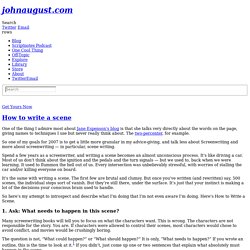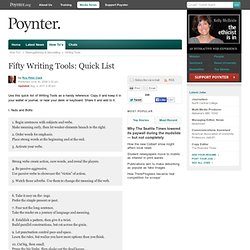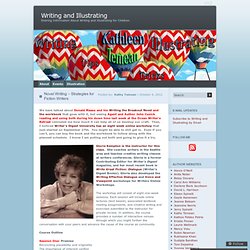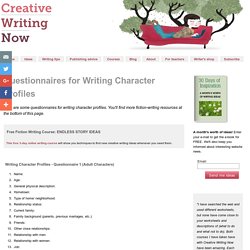

10 Steps to Finding Your Writing Voice. Bonus: Need help finding your writing voice?

Click here for free tips. I write only because / There is a voice within me / That will not be still. –Sylvia Plath Awhile ago, I wrote an article called, “Finding Your Blog’s Unique Voice.” In it, I explain that a blog needs a voice that is both exclusive and authentic. Photo credit: Dan Foy (Creative Commons) But here, I want to share a little bit more about how to find your overall writing voice. Spending some time deliberating over voice is worth your attention and focus. If you struggle with getting people to read your writing or with staying consistent in your craft, you need to stop chasing numbers and productivity and reboot. An exercise for finding your voice Not sure where to start? Describe yourself in three adjectives. Why do you need a writing voice? Keyboard Smash Writers!, 5 Tips on Describing Your Setting. How to write a scene. One of the thing I admire most about Jane Espenson’s blog is that she talks very directly about the words on the page, giving names to techniques I use but never really think about.

The two-percenter, for example. So one of my goals for 2007 is to get a little more granular in my advice-giving, and talk less about Screenwriting and more about screenwriting — in particular, scene writing. Spend a few years as a screenwriter, and writing a scene becomes an almost unconscious process. It’s like driving a car. Most of us don’t think about the ignition and the pedals and the turn signals — but we used to, back when we were learning. It’s the same with writing a scene. So here’s my attempt to introspect and describe what I’m doing that I’m not even aware I’m doing.
Many screenwriting books will tell you to focus on what the characters want. The question is not, “What could happen?” Imagine the projectionist screwed up and accidentally lopped off this scene. Fifty Writing Tools: Quick List. Use this quick list of Writing Tools as a handy reference.

Copy it and keep it in your wallet or journal, or near your desk or keyboard. List of Feeling Words. Novel Writing – Strategies for Fiction Writers. We have talked about Donald Maass and his Writing the Breakout Novel and the workbook that goes with it, but seeing Agent and Author John Cusick reading and using both during his down time last week at the Ocean Writer’s Retreat reminded me how much it can help all of us develop our craft.

Then, I noticed Writer’s Digest University has an eight week online workshop that just started on September 27th. You might be able to still get in. Even if you can’t, you can buy the book and the workbook to follow along with the planned schedule. I know I am pulling out both and going to give it a try. Gloria Kempton is the instructor for this class. The workshop will consist of eight one-week sessions. Course Outline Session One: Premise Reconciling plausibility and originality The importance of inherent conflict Emotional appeal Writing Assignment (Fundamentals): Do exercise on creating a breakout premise, culminating in a 300-word opening paragraph. Click here to read more on Writer’s Digest Kathy. Short Stories: 10 Tips for Creative Writers. Questionnaires for Writing Character Profiles - Creative Writing Help. Enter your e-mail to get the e-book for FREE.

We'll also keep you informed about interesting website news. "I have searched the web and used different worksheets, but none have come close to your worksheets and descriptions of (what to do and what not to do). Both courses I have taken have with Creative Writing Now have been amazing. Each time I have learned something new. The one thing I love, you take everything apart and give examples. " - Katlen Skye "As usual - I already love the course on Irresistible Fiction, rewriting a lot and improving greatly even after the first lesson. “Essentials of Fiction proved that I could indeed write and I wrote every day, much to my boyfriend's dismay (waa sniff).” - Jill Gardner "I am loving the course and the peer interaction on the blog is fantastic!!! " "I'm enjoying the weekly email course, Essentials of Poetry Writing.
"Thank you for all the material in this course. "Thanks very much for this course. Creative Writing For Dummies Cheat Sheet. Rewriting and editing helps to tighten up your work.

But it can be difficult – what to chop and when to stop may not be clear, and you may change your mind more than once during the process. Ask yourself whether you need to take out: Unnecessary information and explanation. Passages of dialogue that go on too long. Clunky descriptions that give too much detail. You may need to add or expand: Something you know but have forgotten to tell the reader; perhaps the age of the main character. You may need to move: Dramatic sections to make a stronger opening. In your final edit: Different hairstyles and descriptive words for hair.